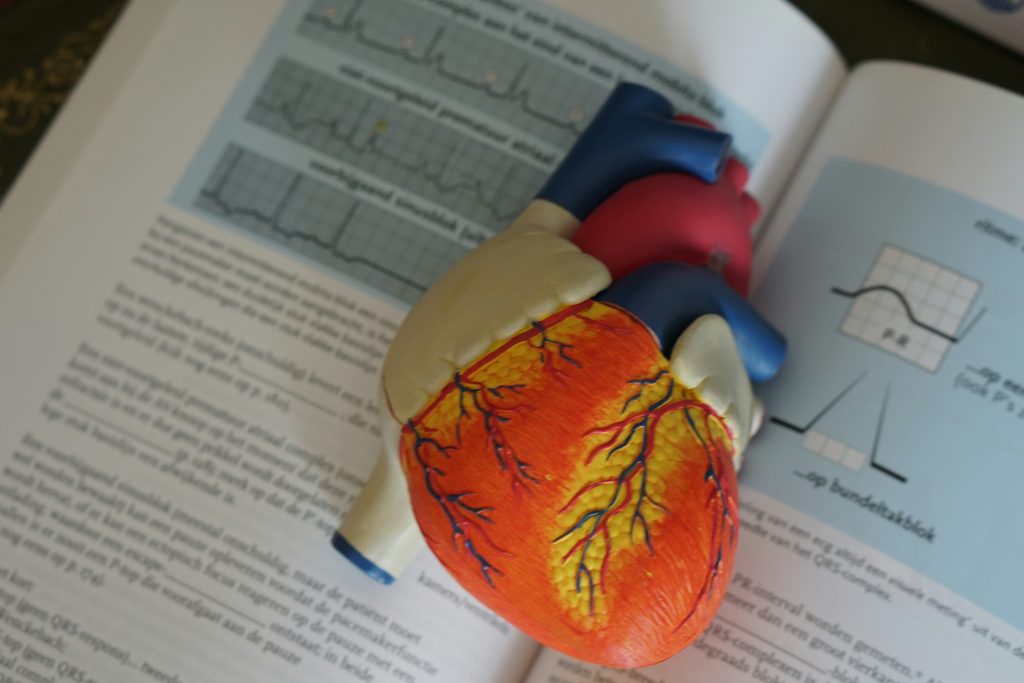
In the quick-moving current world, where sedentary ways of life and unhealthy dietary habits prevail, focusing on heart health becomes fundamental.
A strong and healthy heart is the foundation of overall prosperity, fundamentally decreasing the risk of cardiovascular illnesses that remain a primary source of mortality around the world.
This article investigates seven robust procedures to sustain your heart health, offering everyday experiences of keeping a heart-healthy eating regimen and adopting lifestyle habits that add to a vigorous cardiovascular system.
By incorporating these actions into your everyday practice, you can venture on an excursion towards a heart-healthy way of life that cultivates vitality and life spa

Table of Contents
Toggle1. Maintain a Heart-Healthy Diet
The basis of a healthy heart is careful food selection. Choose a variety of nutrient-dense foods focusing on fruits, vegetables, whole grains, lean proteins, and healthy fats. Get omega-3 fatty acids from foods such as fish and nuts that can be used to reduce cholesterol levels in the body or fight inflammation. Restrict saturated and trans fats as well as excess sodium or added sugars.
Moreover, a diet that is healthy for the heart not only regulates weight but also controls cholesterol levels and blood pressure, strengthening cardiovascular health against possible hazards. Following these dietary guidelines persistently creates an essential foundation for a strong and healthy heart.

2. Engage in Regular Physical Activity
An active lifestyle is a pillar of cardiovascular health. Strive to do at least 60 minutes of moderate-intensity aerobic exercise or 75 minutes of vigorous activity per week.
Add activities such as brisk walking, jogging, swimming, or cycling to improve cardiovascular endurance and reduce high blood pressure. The heart’s overall function is enhanced by the strength training exercises because they promote muscle health.
Physical activity not only promotes weight control but also prevents heart disease, improves blood circulation, normalizes cholesterol levels, and increases cardiac efficiency. Adopt an exercise program of your liking; work on building a tough and consistent heart.

3. Manage Stress Effectively
Chronic stress poses a critical danger to heart health, hoisting the risk of cardiovascular issues. Therefore, it is essential to embrace effective stress management techniques. Take part in mindfulness practices like meditation, yoga, or profound breathing activities to promote relaxation. Develop leisure activities and invest energy in nature to mitigate day-to-day pressures.
By addressing stress, you relieve the arrival of stress chemicals that add to raised blood pressure and inflammation. Focusing on mental prosperity protects the heart as well as cultivates emotional resilience. This creates a harmonious equilibrium that upholds a better cardiovascular system despite life’s difficulties.
4. Get Quality Sleep
Heart health is not complete without quality sleep. Try to get between 7 and 9 hours of continuous sleep every night so that the body can recover. Insufficient or low-quality sleep can lead to an elevated risk of heart disease. Develop a regular sleep schedule, make your bed comfortable, and avoid the use of electronic devices before heading to bed.
High-quality sleep regulates hormones that impact heart health, helping ensure proper blood pressure and beneficial overall cardiovascular functioning. The importance of restorative sleep is not only a boost in daytime productivity but also stands as an effective prevention mechanism for heart-related complications. Thus promoting a strong and healthy cardiovascular system.
5. Quit Smoking and Limit Alcohol
Liquor misuse and smoking can adversely affect heart health. It’s critical to quit smoking since it causes direct blood vessel harm, raises circulatory strain, and increases the risk of coronary illness. Limit liquor use to reasonable amounts since overindulging in liquor could deteriorate cardiovascular conditions like hypertension.
Giving up drinking and stopping smoking are progressive advances toward reinforcing heart well-being. These way-of-life adjustments upgrade oxygenation and blood dissemination. Meanwhile, it brings down the risk of possibly lethal sicknesses, fortifies the heart, and improves general well-being.
6. Monitor Blood Pressure and Cholesterol Levels
Heart health is best addressed in a proactive way through vigilant monitoring of blood pressure and cholesterol. Frequent consultations with medical professionals allow for early detection of problems and timely intervention. High blood pressure and high cholesterol levels significantly increase the likelihood of suffering from heart disease.
Work with your healthcare provider to develop individualized goals and put management strategies in place. These markers can be positively affected by lifestyle modifications such as dietary changes and physical activity. By staying proactive in monitoring key indicators, you give yourself the power to make informed decisions and take essential measures aimed at preserving healthy cardiovascular conditions.
7. Stay Hydrated and Maintain a Healthy Weight
Water and weight control are essential aspects of a heart-healthy lifestyle. Sufficient water intake maintains blood volume, which helps the heart pump effectively.
Seek optimal hydration by drinking water every day. At the same time, weight management is also essential because obesity puts a strain on the heart and increases blood pressure as well as diabetes.
Eat a balanced diet and exercise regularly in order to maintain an ideal weight. These interdependent practices not only ensure cardiovascular health but also establish a basis for wellness. Thus relieving the heart from stress and developing an enduring and robust cardiovascular system.
Bottomline
Heart health ought to be a lifelong responsibility that requires an incorporated way of life approach.
With the assistance of these seven robust methodologies, you will be able to build a strong heart and limit your chances of getting cardiovascular illnesses. Remember that small, everyday changes can essentially affect your general prosperity, offering you the opportunity to carry on with a heart-healthy and fulfilling life. Look for guidance from medical care providers for individualized suggestions and direction on heart well-being.
More Stories
From Fear to Freedom: Understanding and Managing Panic Attacks
What Are Panic Attacks? Panic attacks are sudden periods of intense fear or discomfort that peak within minutes. These episodes...
Unlocking a New You: The Complete Guide to Hair Transplant in Dubai
In recent years, Dubai has become a hotspot for medical tourism, particularly for cosmetic procedures. Among these, hair transplants have...
Batana Oil Benefits: A Hidden Gem for Hair and Skin Care
Batana oil, often referred to as "liquid gold" for hair and skin, is one of nature’s best-kept secrets. Extracted from...
How to Choose the Best Steroid Cycles for Cutting Safely and Effectively
The key to getting ultra lean is the best steroid cycles for cutting. The cutting phase is one at which...
Revolutionizing Addiction Recovery: The Rise of Virtual Suboxone Treatment
Addiction treatment has long been a challenge for both patients and providers, requiring access to specialized care and consistent support....
Optimize Your Wellness with Health Hub Singapore: The Ultimate Health Resource
In a rapidly evolving world where health and well-being are increasingly prioritized, having access to a trusted source of quality...


